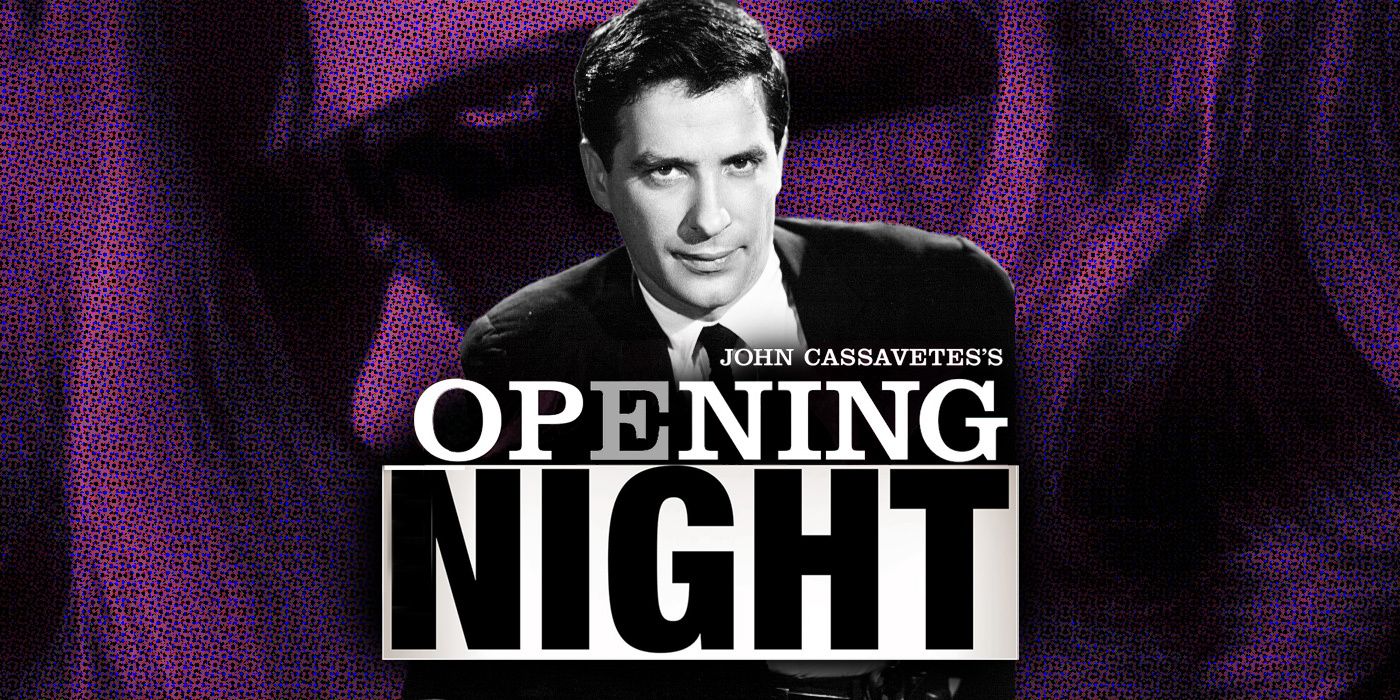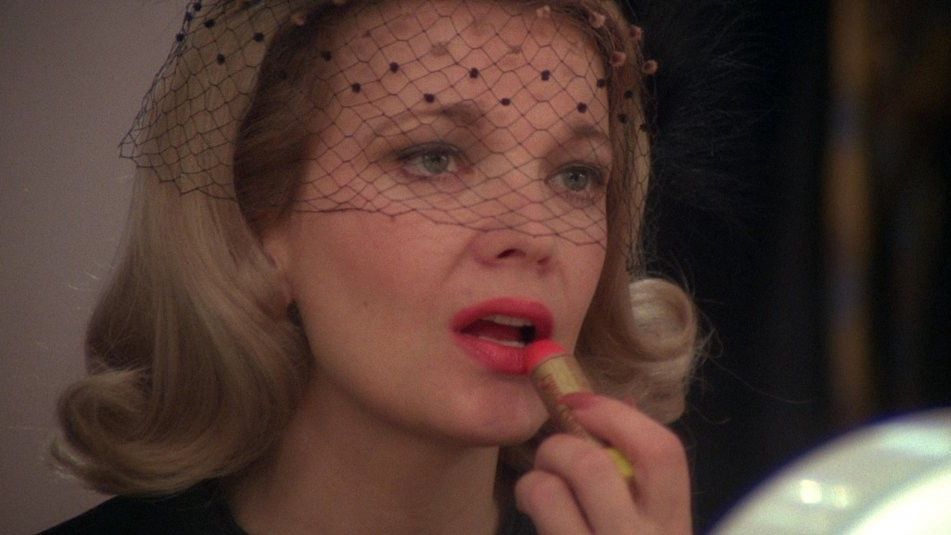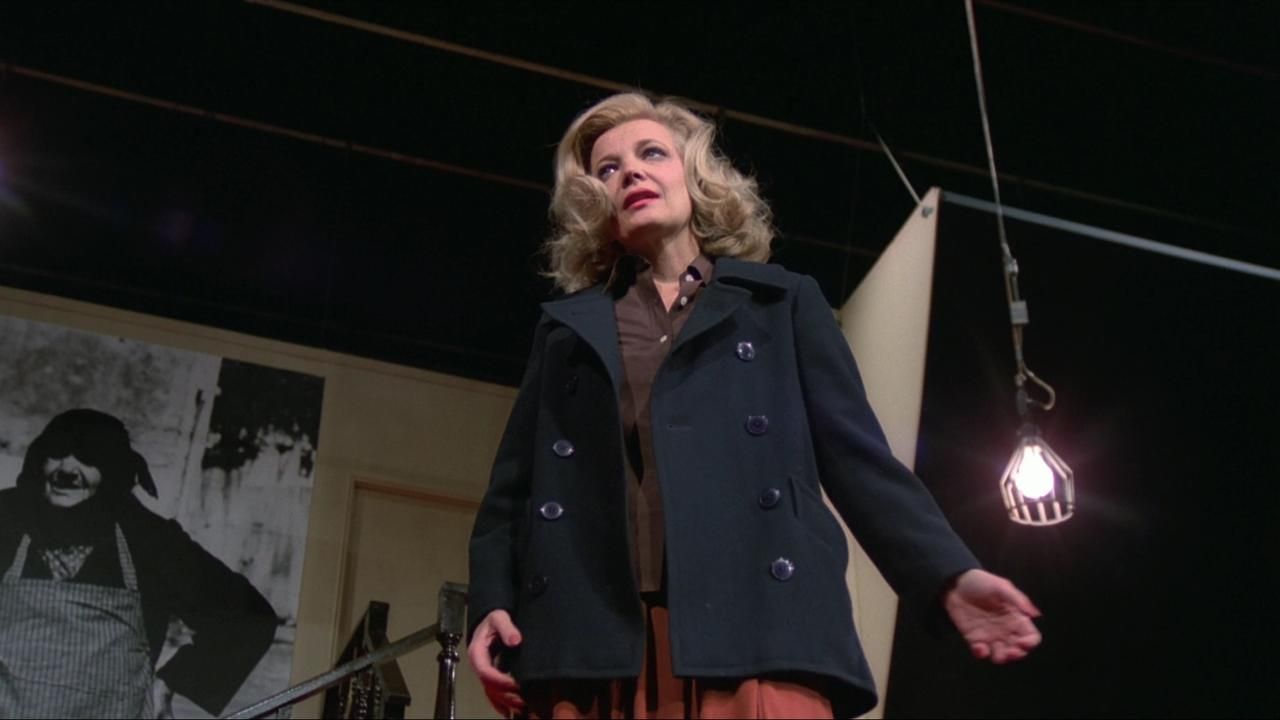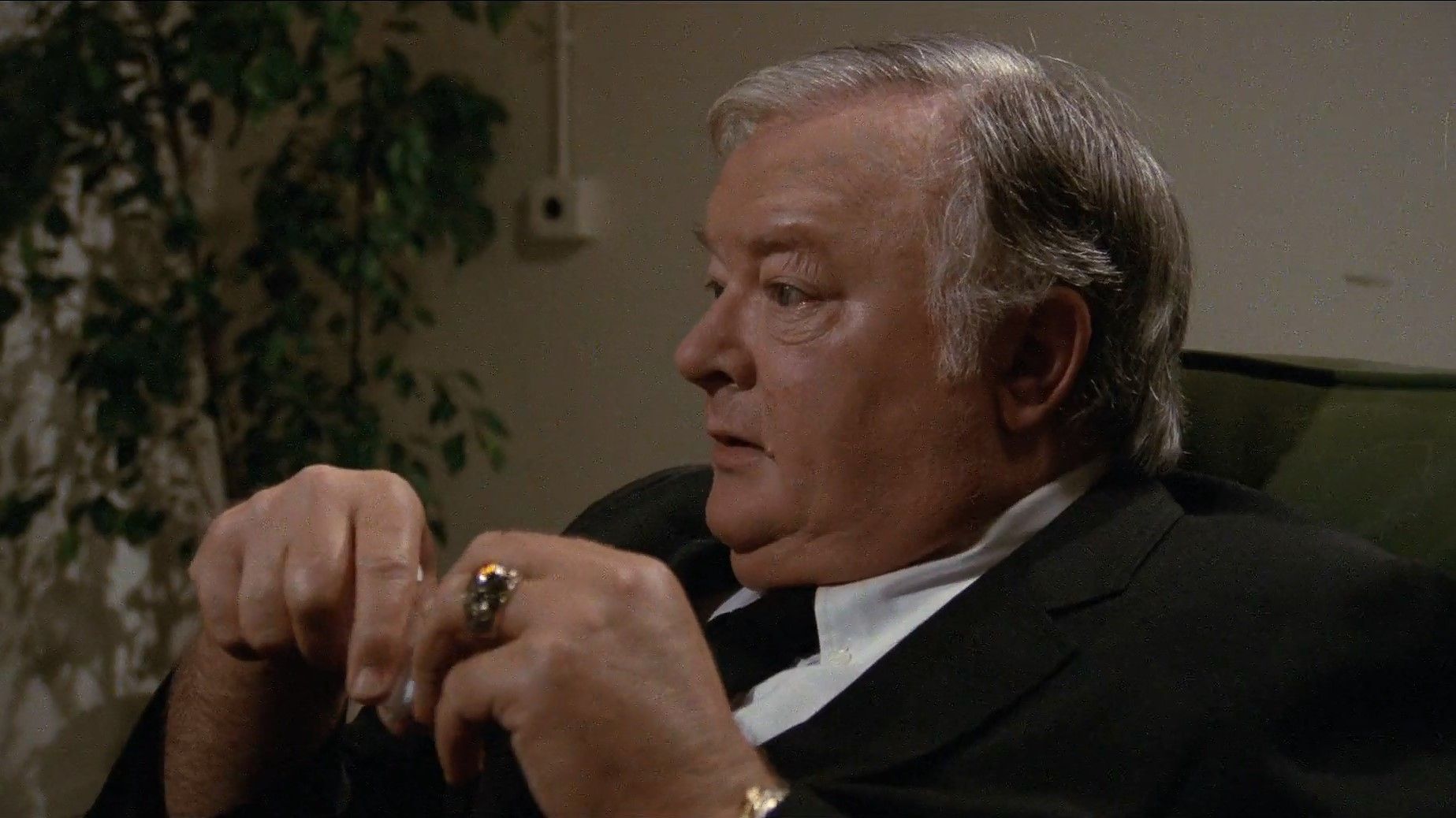1977's Opening Night, one entry in director John Cassavetes' outstanding catalog, is a complex film. Starring Gena Rowlands as stage actress Myrtle Gordon, the movie opens with Myrtle witnessing the untimely death of one of her teenage fans. While upsetting in itself, this event comes at a time in Myrtle's life where she is already contemplating multiple crossroads - her age, her relationships, and even what acting as an art means to her are all waging wars inside of Myrtle at the same time. The way it breaks down Myrtle's midlife crisis while weaving in the play she finds herself engrossed in is much like a proto-Birdman. There are many angles to view Opening Night's myriad themes from, as Myrtle's state of mind is in constant flux and the movie evolves with her, but there's one that stands out to challenge even the viewer watching the movie as it goes on: what it means to interpret art in the first place.
The way Opening Night reveals this message on the subjectivity of art is twofold; one, through Myrtle herself, and second, through the evolution of the audience during the various pre-showings and final performance of the in-universe play Myrtle stars in.
As the film begins, we see one of the early out-of-town shows of the movie's play, titled "The Second Woman," during which we see mainly the final act out of context to the rest of the show. It goes fine, though Myrtle is clearly troubled by the way she connects to her character's struggles, and when her young fan Nancy dies trying to chase after her, Myrtle's turmoil boils to the surface. Much to the dismay of her producers, including the playwright Sarah (Joan Blondell), Myrtle starts channeling that energy she has around her own struggles into the play itself, taking liberties in the dialogue and even outright refusing to do at least one particularly charged scene in which her co-star slaps her. She challenges Sarah's intent, crafting an experience that feels more true to her, forcing her own subjectivity onto the character by taking her own kind of "ownership" of the character as her actress.
A neat part about this evolution of Myrtle's performance is that, until the end of the film, we are only shown "The Second Woman" in fragments, asked to piece together both the original plot and Myrtle's ongoing changes to her character in real-time. We're told numerous times by both Myrtle and Sarah what Sarah's original intent with the character was, and we can use what we learn about Myrtle to inform that reading, too, since Sarah constantly compares the character to Myrtle, saying she must come to terms with the character because she and Myrtle are one and the same. Myrtle slowly rejects this, refusing to see herself and the character as one and the same. At the same time though, the character Myrtle crafts actually becomes more like Myrtle, or at least more like how Myrtle understands herself to be. The two ideas, Myrtle's understanding of herself, and Sarah's understanding of Myrtle, clash.
Can it really be said then, that Myrtle is changing anything at all about "The Second Woman"? That's the question implicitly asked by Opening Night as it goes on, and it permeates even the experience of watching the real-life Gena Rowlands playing the fictional Myrtle playing yet another layer of fictional character. When there are so many layers to creating something as complex as a movie or play, where does intent end, at what point does it stop mattering? Watching Sarah become dismayed at Myrtle changing her script, yet understanding that this clearly makes the character and play more compelling as a result, complicates the act of interpretation.
Indeed, Myrtle and Sarah aren't alone. As Myrtle continues to improvise further and further, her fellow actors on the stage are made to interpret their characters in new ways, too, complicating the whole situation even further. We arguably learn more about the extended cast of Opening Night more through watching them react to Myrtle's on-stage antics than we do from what we see of them off-stage, and the entire act of creation begins to feel melded to reality in a way that is not usually so palpable, yet undeniably always there.
Opening Night puts a neat bow on this idea of the un-reality of fiction through how the showings of "The Second Woman" are shot. That is, at most times, we see both the characters we know on the stage and the audience watching the in-universe play in the same frame. And since we see multiple showings of the play, we get to see how the reactions of the audience change as the play changes, too.
The confused audience at the beginning of the film makes way for the final performance, which finds the onlookers more enraptured with the show than ever. But these audiences are never the same — each one is seeing "The Second Woman" for the first time, reacting to what they simply understand to be the play as it was meant to be seen. They love the final performance, where Myrtle is at her most honest and playful, but they have no idea how much it deviates from Sarah's original script.
Only we, the audience of the audience of the play, are privy to how complicated and messy the final product is, and as a result we are compelled to question the nature of interpretation, to embrace the subjectivity of the entire affair. The final audience believes in what they're seeing in "The Second Woman" as the intent, and enjoy it for what it is. We, watching Opening Night, are more meta textually aware of the nuance, but it still doesn't feel like the in-universe audience is wrong to feel the way they do; a couple layers down, "The Second Woman"'s original playwright Sarah is distraught at what became of her creation, and she doesn't seem to be wrong, either — she wrote the thing, after all. By stacking these perspectives on top of each other, including our own, Opening Night creates a beautiful kaleidoscope of interpretation, and exposes the subjectivity inherent to art — everyone brings their own baggage to each piece, and as long as we are engaging with it honestly, it's hard to argue anyone is truly 'wrong' about their experience.




